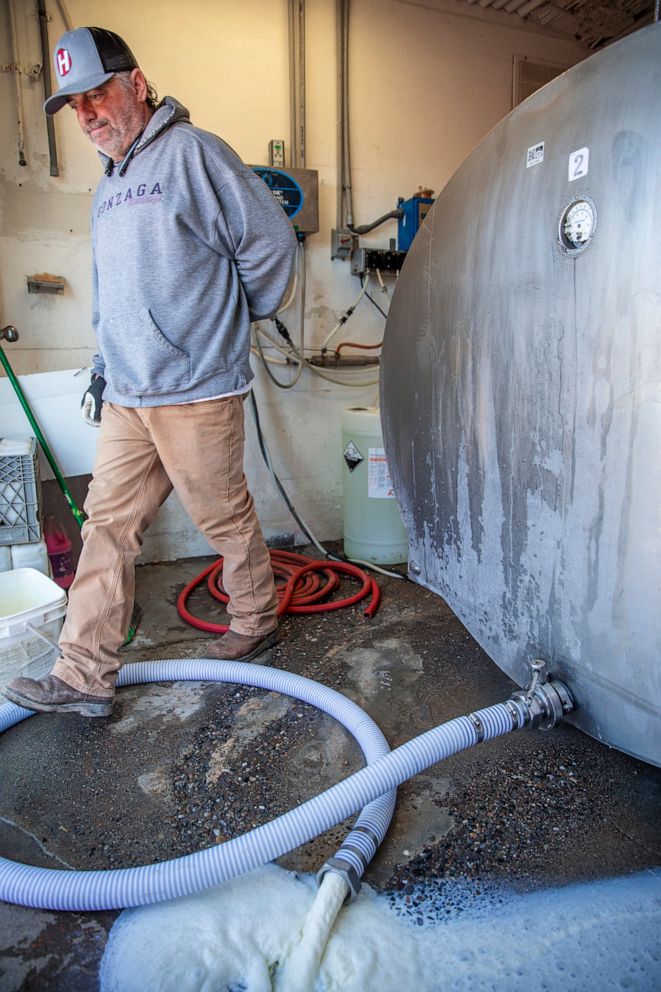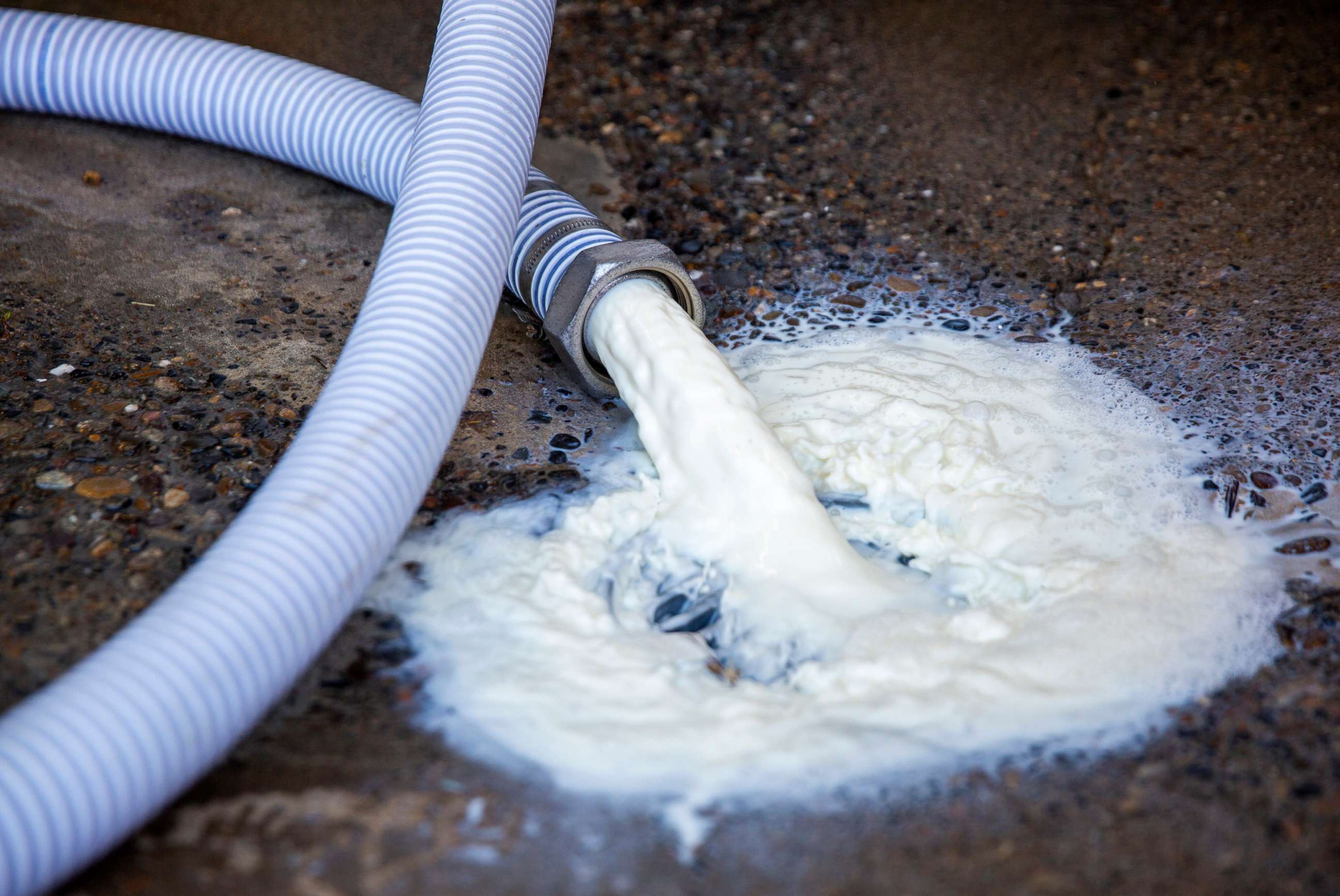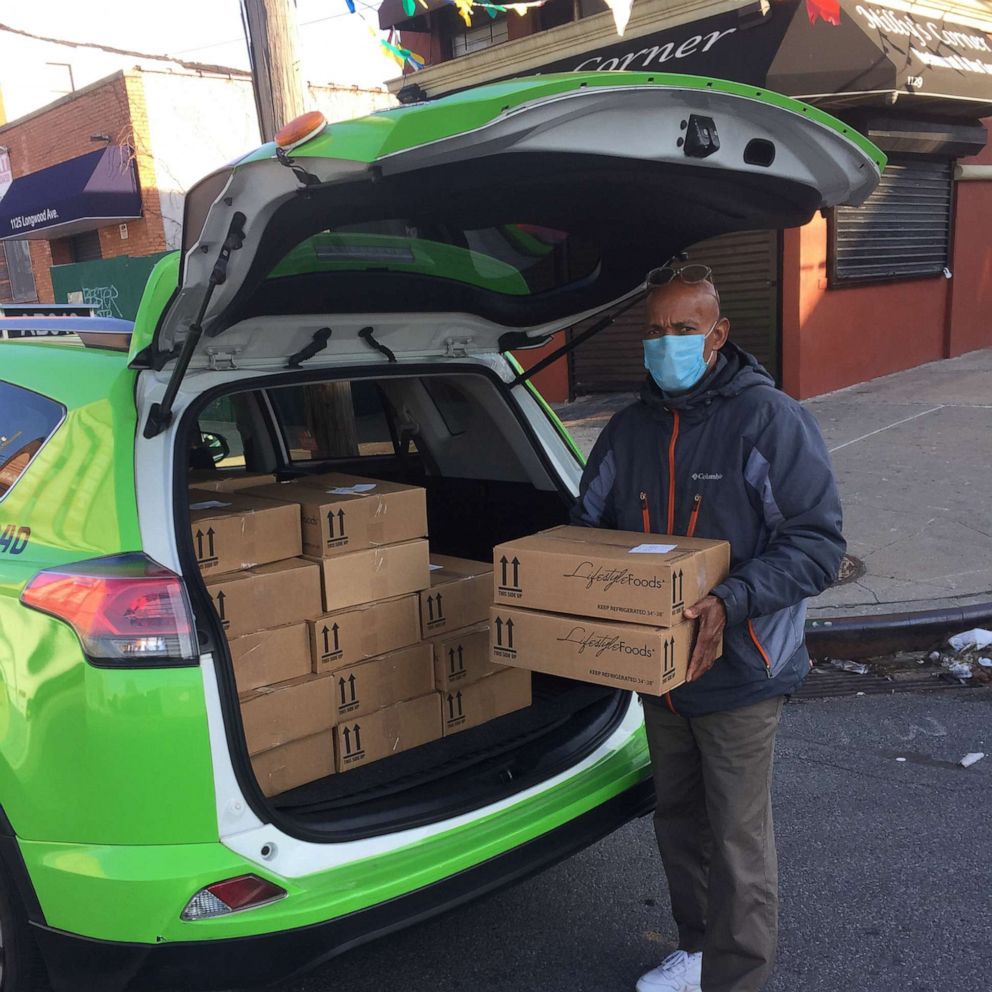Dairy farmers dumping milk amid COVID-19: Pandemic's impact on the dairy industry
The issue isn’t necessarily the virus, instead it has to do with demand.
Some years it’s the weather. Some years it’s the market, but right now the agriculture and specifically, the dairy industry is dealing with COVID-19 just like everyone else.
The issue isn’t necessarily the virus, instead it has to do with demand.
Stay-at-home orders and social distancing mandates have severely limited operations or closed restaurants, schools and stores, leading to farmers in California, Florida and other Gulf states, where most of the country’s produce comes from this time of year, with no market, according to Orion Samuelson, an agro-business reporter for WGN Radio in Chicago, who spoke with Ryan Burrow on ABC Audio's Perspective Podcast.
In the Midwest, it’s still early in the planting season, but farmers in the region have another issue to deal with, milk.

Even though there is no one to buy it, cows still need to be milked.
Tune into ABC at 1 p.m. ET and ABC News Live at 4 p.m. ET every weekday for special coverage of the novel coronavirus with the full ABC News team, including the latest news, context and analysis.
"Dairy farmers can't keep the milk and so they're dumping it because, they've invested so much money to produce it already, Money and labor and goods to get it done, that they can't sell it," said Samuelson. "The biggest buyer of fluid milk in the United States is the National School Lunch Program. Those buyers just aren't out there."
You can listen to the full episode here:
Wisconsin farmers have been among those forced to dump milk. Some were being paid to do so for a while, but it's unclear how long that will last.
Amy Hildebrandt owns and operates Hildebrandt Farms in South Beloit, Illinois, near the Wisconsin border. She told ABC’s Perspective Podcast the farm continues to send milk to Dean Foods, a milk processor, in Harvard, Illinois.
"Our farm in particular has not had to dump, not yet," said Hildebrandt. "But, that's something that we're well aware of may come in the future."

Her day-to-day operations have changed little, and the farms continue to operate with a full staff, but she said the farm is a little quieter these days.
"Normally, now would be a school field trip season. But yeah, we aren't doing any of that," said Hildebrandt.
Hildebrandt said she is keeping her eye on the U.S. Department of Agriculture's plan to put billions of dollars into the pockets of farmers to help keep the nation's food supply protected and faithfully supply in the United States.
"They have a safe food supply in the United States and we have plenty of food," said Hildebrandt. "We’re very fortunate that way, that farmers all over are doing a wonderful job of providing safe, nutritious food for us."
On Friday, the Trump administration announced it would spend $19 billion dollars to help struggling farmers during this pandemic.
What to know about coronavirus:
- How it started and how to protect yourself: Coronavirus explained
- What to do if you have symptoms: Coronavirus symptoms
- Tracking the spread in the U.S. and worldwide: Coronavirus map







